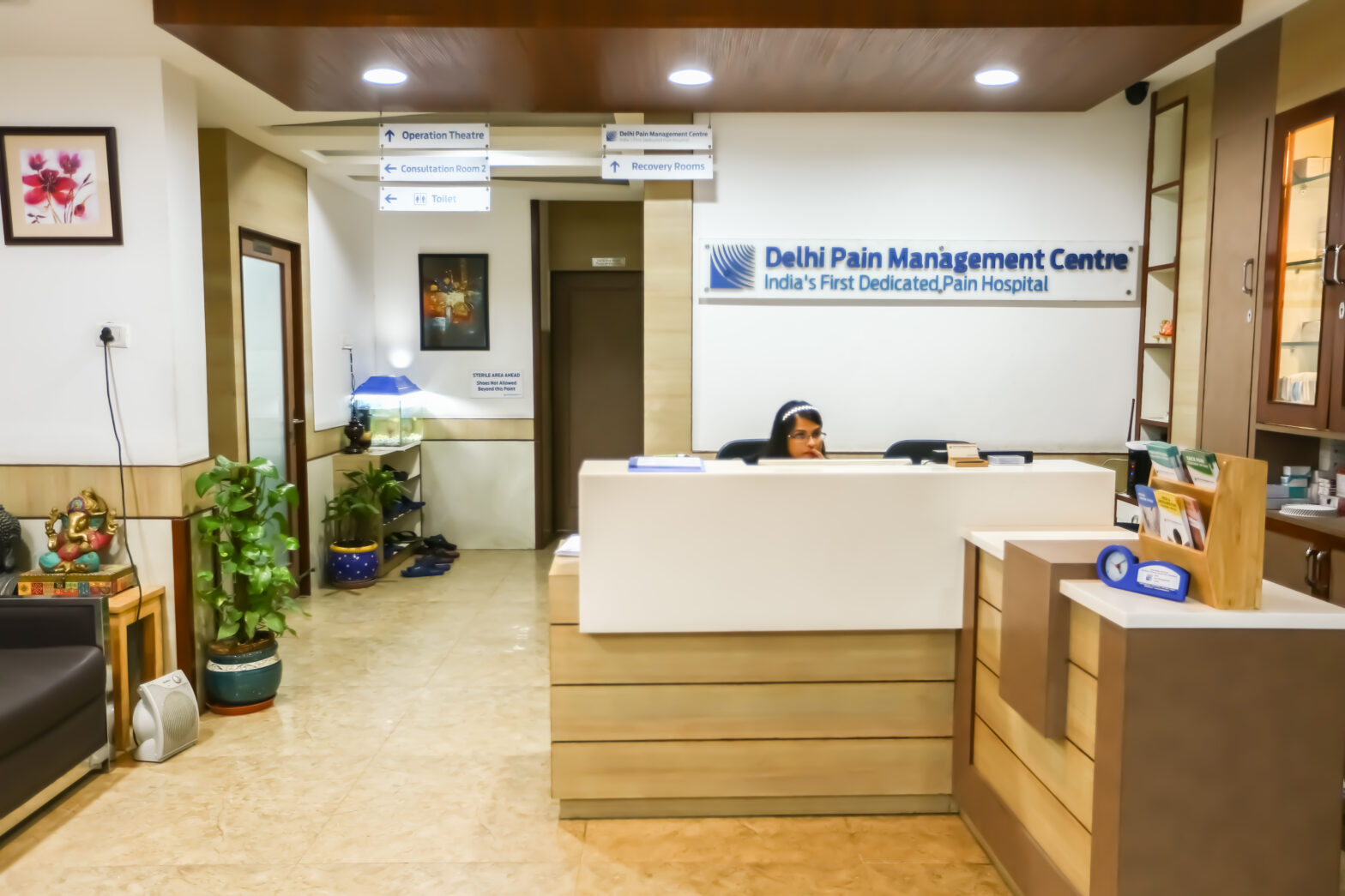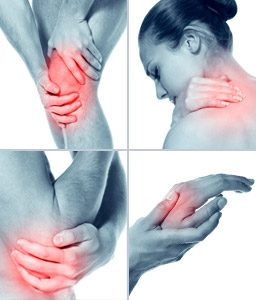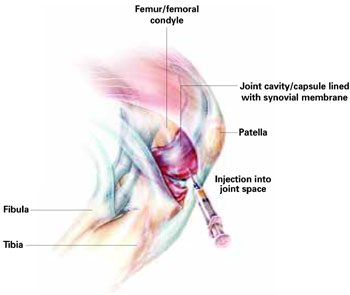
Joint Pain
Joint Pain
Causes Of Joint Pain

Joints form the connections between bones. They provide support and help you move. Any damage to the joints from disease or injury can interfere with your movement and cause a lot of pain.
Many different conditions can lead to painful joints, including osteoarthritis, rheumatoid arthritis, bursitis, gout, strains, sprains, and other injuries. Joint pain is extremely common. About one-third of adults report having joint pain within the past 30 days. Knee pain is the most common complaint, followed by shoulder and hip pain, but joint pain can affect any part of your body, from your ankles to your shoulders. As you get older, painful joints become increasingly more common.
Joint pain can range from mildly irritating to debilitating. It may go away after a few weeks (acute), or last for several weeks or months (chronic). Even short-term pain and swelling in the joints can affect your quality of life.
Treatment
Joint Pain Treatment
- Medications: For moderate-to-severe joint pain with swelling, an over-the-counter or prescription nonsteroidal anti-inflammatory drug (NSAID) such as aspirin, or ibuprofen can provide relief. A newer generation of NSAIDs known as Cox-2 inhibitors (Celebrex) is also good for pain relief. If you have milder pain without any swelling, acetaminophen (Tylenol) can be effective. These pain medications should be taken only with the advise of qualified pain physicians. If your pain is so severe that NSAIDs and Cox-2 medicines aren’t effective enough, your pain physician may prescribe a stronger opioid medication.
- Physical Therapy: You can work with a physical therapist to strengthen the muscles around the joint, stabilize the joint, and improve your range of motion. The therapist will use techniques such as ultrasound, heat or cold therapy, electrical nerve stimulation, and manipulation.
If you are overweight, losing weight can relieve some of the pressure on your painful joints. Exercise is one effective way to lose weight (along with diet), but be careful to stick with low-impact exercises that won’t further irritate the joint. Swimming and bicycling are among the best exercises because both allow you to exercise your joints without putting impact on them. Because water is buoyant, swimming also relieves some of the pressure on your joints. - Home Care: You can relieve short-term joint pain with a few simple techniques at home. Some of these tips include:
- Protecting the joint with a brace or wrap.
- Resting the joint, avoiding any activities that cause you pain.
- Applying ice on the joint for about 15 minutes, several times each day.
- Compressing the joint using an elastic wrap.
- Elevating the joint above the level of your heart.
- Applying ice to your painful joints can relieve the pain and inflammation. For muscle spasms around joints, try using a heating pad or wrap several times a day.
- Injections: Potent anti-inflammatory agents can be injected into the joints to reduce pain and inflammation. Ozone Gas injections have also clinically proven to be extremely effective at pain relief.
- Other injection options include:
- Removing fluid from the joint (and is often done in connection with a steroid injection).
- Injections of hyaluronan, a synthetic version of the natural joint fluid. This is used to treat osteoarthritis.
Stem Cell/Platelet Rich Plasma (PRP) therapy:
PRP therapy involves injecting platelets from the patient’s own blood to rebuild a damaged tendon or cartilage. It has been successful in not only relieving the pain, but also in jumpstarting the healing process. The patient’s blood is drawn and placed in a centrifuge for 15 minutes to separate out the platelets. The platelet-rich plasma is then injected into the damaged portion of the tendon or cartilage.

- Surgery:Surgery procedures (like Total Hip Replacement) are used as a last resort. Like all other surgeries, these surgeries have their own issues like associated risks and high hospitalization and recovery times. Even then, the success rate for surgeries is limited to 60-70%.
Available Treatments
Joint Pain Treatment Options Available At DPMC

- Oral/Physical therapies.
- Synvisc-One injections.
- BOTOX injections.
- Platelet Rich Plasma/Stem Cell therapy.
- Intra-articular Ozone Injections.
Book An Appointment Now!
You can also book an appointment over phone by calling us on 011-39595696 or

